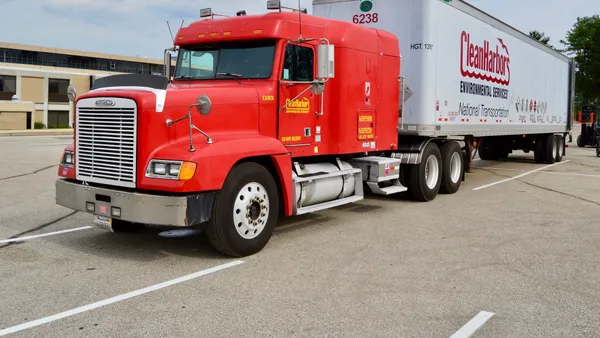Dive Brief:
- Covanta Energy, which operates five of the six municipal WTE incinerators in Pennsylvania, wants to prohibit allowances for landfills that capture methane if Pennsylvania creates an emissions trading system. The company is concerned allowances will create a hurdle for its livelihood while providing incentive for greater landfill use, despite the state being touted for its effectiveness in turning methane gas to energy, attributed to stringent landfill gas control strategies.
- According to Pennsylvania DEP emissions figures, the state’s WTE facilities generate about 2.3 million metric tons of carbon dioxide while landfills reduce emissions by 0.4 million metric tons. But the incinerator system reduces the need to burn fossil fuels for power; it offsets landfill methane and retrieves recyclable metal.
- Still, Pennsylvania’s total greenhouse gas emissions — regardless of how it processes solid waste — accounted for less than 1% of the state’s total emissions of global warming gases in 2012, according to Department of Environmental Health figures.
Dive Insight:
An answer for the best solid waste management systems has yet to be proven. Each has unique properties, though most are finding a way to dispose of trash while creating resources — with the challenge being to find the cleanest way to do it.
The concept of trapping methane at landfills has generated public health concerns from its inception. But there have consistently been arguments for and against incineration.
Covanta has its concerns about its competition and its alternative methods.
"The state should avoid creating a hurdle for [waste-to-energy] which does not apply to landfills, given that [waste-to-energy] mitigates [greenhouse gases] while landfills contribute to the burden," the New Jersey-based company wrote.
"Both waste-to-energy and Pennsylvania landfills have a role to play in mitigating [greenhouse gas] emissions," the Pennsylvania Waste Industries Association said, in a peace-making gesture, "but in terms of magnitude, we’re very small but beneficial players."









